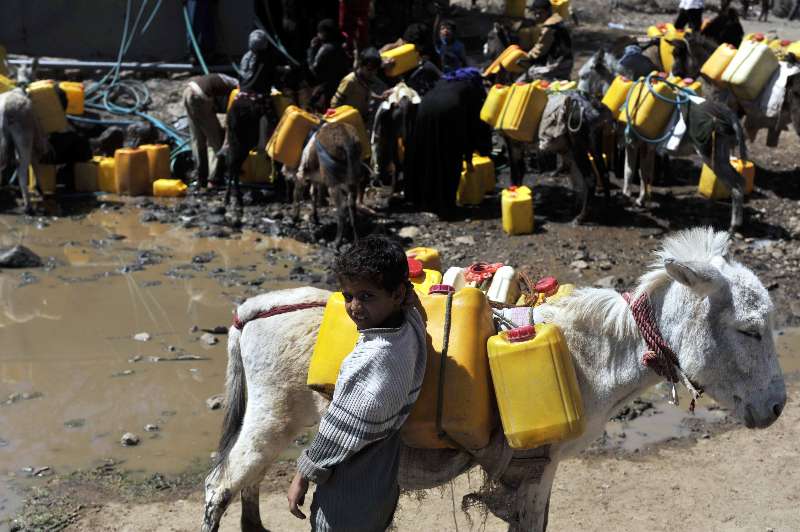Lack of safe water, sanitation and hygiene in birth settings is killing mothers and newborns in the developing world, shows a new study.

- A boy waits for filling tanks with clean water at al-Ajlub district, 180 km south of Yemen’s capital of Sanaa. (File photo)
In a flagship paper, 16 researchers from various organisations, including the World Health Organization (WHO) and the United Nations Children’s Fund (Unicef), have made some vital suggestions for fighting the menace.
“We have known since Victorian times about the importance of clean water and good hygiene in birth. Yet, today tens of thousands of mothers will be giving birth in places where doctors and midwives, if present, do not have access to clean water,” said Yael Velleman, senior policy analyst, sanitation and health, at WaterAid.
The team has urged world leaders to protect the lives of new mothers and their babies, by improving access to safe water, basic sanitation and hygiene in health care facilities and homes.
Despite the improvements in health care, new mothers and newborns are still dying due to lack of regular supply of safe water, good hygiene practice and adequate toilets, said the team.
Globally, an estimated 289,000 women died from complications related to pregnancy or child birth in 2013.
The number can be rapidly reduced through better provision and monitoring of safe water, basic sanitation and hygiene to prevent infection and improve care, suggested the team.
“What is frustrating is we know infection-related deaths are preventable, with the addition of clean water, basic toilets and good hygiene practices,” said lead author Lenka Benova of the London School of Hygiene & Tropical Medicine.
“Our hope is these findings will guide future work on UN development goals and make the provision of these services a priority, when trying to improve the health of new mothers and their babies,” added Benova.
The study appeared in the journal PLOS Medicine.